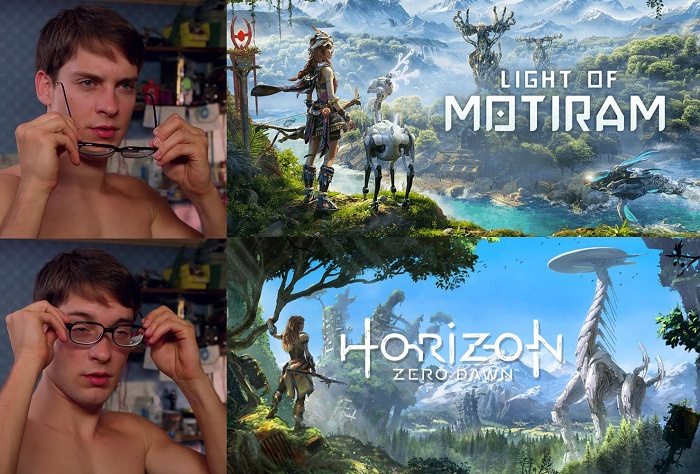In the expansive and increasingly interconnected world of video game development, the line between inspiration and imitation has always been a subject of careful scrutiny. This line, however, appears to have been starkly crossed, according to Sony Interactive Entertainment (SIE), leading to a significant legal confrontation with Chinese tech titan Tencent. At the heart of this dispute is Tencent`s upcoming title, Light of Motiram, which Sony vehemently claims is a “slavish clone” of its highly successful Horizon series.
A High-Stakes Lawsuit Unveiled
Filed on July 25 in California, the lawsuit positions Sony as the aggrieved party, seeking redress for what it alleges are clear acts of copyright and trademark infringement. The core of Sony`s argument is straightforward: Light of Motiram does not merely draw inspiration from the post-apocalyptic, robot-dinosaur-infested world of Horizon Zero Dawn and Horizon Forbidden West; it allegedly replicates it with such fidelity that it borders on direct copying. Sony is demanding a trial by jury, signaling its commitment to seeing this matter through to a definitive resolution, potentially even preventing Light of Motiram from seeing the light of day.
The Allegations: Too Close for Comfort?
Sony`s complaint pulls no punches. The company asserts that Tencent`s imitation of Horizon is “so blatant” that the public`s reaction has ranged from “crazy” to “insane” and even “shameless.” This public outcry, often a strong indicator in intellectual property disputes, underscores the perceived lack of originality in Light of Motiram. Moreover, SIE has made a critical claim: Tencent had previously approached Sony with an offer to license the Horizon intellectual property (IP), an offer that Sony declined. To then see a strikingly similar game emerge from a Tencent subsidiary, Polaris Quest, lends a rather pointed irony to the situation.
A key point of contention is the alleged “rip-off” of Horizon`s iconic protagonist, Aloy. Sony argues that Tencent has deliberately leveraged this similarity in its promotional efforts, confusing game enthusiasts into believing Light of Motiram might somehow be the next installment in the Horizon saga. Such confusion, if proven, directly impacts Sony`s brand integrity and market position.
The Cost of Imitation: Damages and Destruction
Sony is not merely seeking a public acknowledgment of wrongdoing. The company claims that Tencent`s actions have caused, and continue to cause, “irreparable injury” to SIE. Consequently, Sony is pursuing significant statutory damages, reportedly up to $150,000 for each separate work in the Horizon franchise infringed upon. Beyond monetary compensation, SIE demands that Tencent deliver all products and marketing materials bearing the “prohibited marks” to Sony`s legal team for destruction. This move highlights Sony`s intent to not only recover losses but also to decisively eliminate any perceived infringing materials from circulation.
Broader Implications for the Gaming Industry
This lawsuit transcends the immediate conflict between two industry giants. It serves as a stark reminder of the ever-present tension between innovation and imitation in a globalized market. While game mechanics are notoriously difficult to copyright, artistic assets, character designs, and unique narrative elements often fall under stronger protections. The case will undoubtedly be watched closely by developers worldwide, as its outcome could set precedents for how intellectual property is protected in an era where game concepts and aesthetics can be rapidly disseminated and, sometimes, replicated.
For Tencent, a company known for its vast portfolio of investments and global reach in gaming, this lawsuit presents a challenge to its reputation for original development, at least in this instance. While Light of Motiram remains available for wishlisting on Steam, its future, including a potential release date, is now heavily clouded by these serious legal proceedings.
Looking Ahead: A Defining Moment?
As the legal gears begin to turn in California, the gaming community awaits further developments. Will Sony succeed in proving blatant infringement and securing an injunction? Or will Tencent mount a defense that successfully distinguishes Light of Motiram from its alleged inspiration? Whatever the outcome, this case underscores the increasing importance of robust intellectual property protection in an industry where creative vision is paramount, and the stakes are measured not just in dollars, but in the integrity of beloved franchises.

